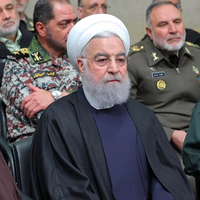Iran Cracks Down On Banks For Tax Enforcement Amid Budget Shortfall
Iran’s tax authorities have banned the CEO and members of the board of a bank from leaving the country after they failed to provide information about certain transactions.
State media quoted Vahid Azizi, an official in the tax inspectorate as saying, “One of the country’s banks has refrained from supplying information on suspicious transactions of businesses despite repeated warnings,” leading to the decision to ban the CEO and members of the board of directors from leaving the country. He did not name the bank in question.
Azizi emphasized that other banks have also been warned to provide all information necessary for the tax authorities before February 20th.
Both Iran’s government and its state-controlled and quasi-private banks face serious financial problems due to years of economic crisis, rising inflation and problems stemming from the inefficiencies of a state-controlled economy.
The Iranian government has been relentlessly printing money in the past five years after the United States withdrew from the JCPOA nuclear accord and imposed economic sanctions in 2018. This has fueled inflation, while the government has failed to effectively respond to the economic challenges.
There have been several major corruption scandals related to government officials and individuals considered regime insiders. This has also affected the banking system and the government pension schemes. Most banks are run by political appointees who maintain government control over lending and investments, while also finding opportunities to engage in suspicious financial activities.
The government faced with a large budget deficit, has resorted to increasing taxes, which is hard to enforce in a system mired by political influences and insider networking.







